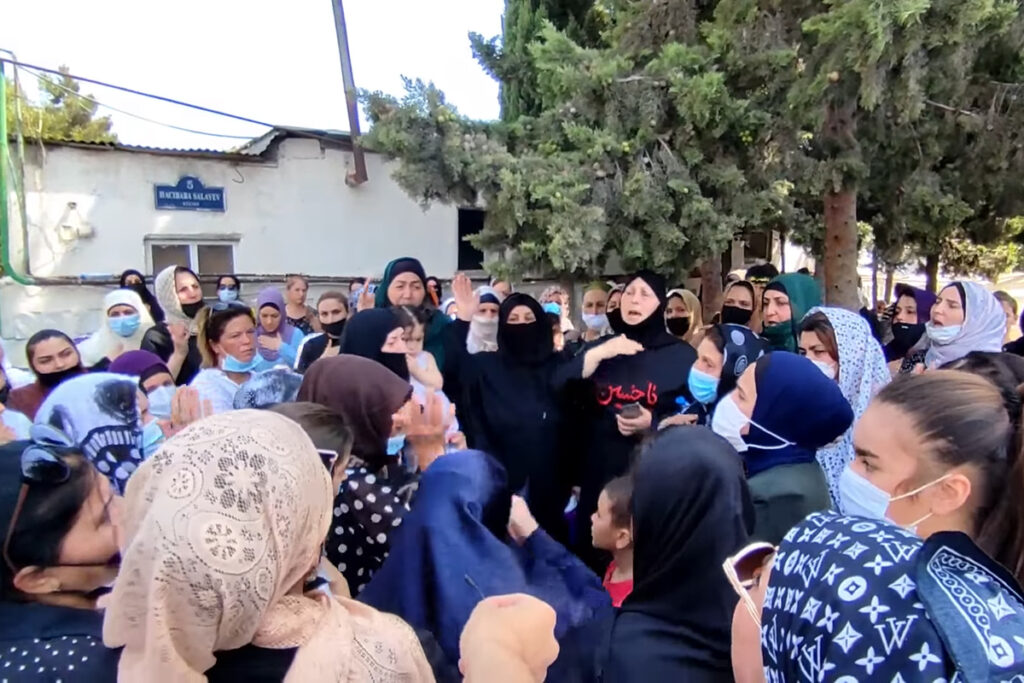Despite new amendments to Azerbaijan’s constitution that bar ‘forcing’ children to practice a religion, Ashura commemorations went on largely without incident and included children’s participation.
On 19 August, Muslims in Azerbaijan marked Ashura, one of the most important days in the Islamic calendar.
In Baku, Sumgait, Ganja and other cities, crowds gathered to hold public ceremonies. Despite the fact that a new Constitutional Amendment appears to ban children's participation in such religious events, videos from around the country show minors participating without incident.
For Azerbaijani Shia Muslims, the majority of the country’s population, the day commemorates the martyrdom of Imam Hussein, the grandson of the Prophet Muhammad.
Public commemorations of Ashura were cancelled in 2020 due to the pandemic. This year, they were allowed for those who have been vaccinated against COVID-19. When commemorations got underway, those who did present proof of vaccination were physically barred from participating by police.
Constitutional Amendments
The amendments to the Law on Freedom of Religion came into force on 16 June.
The law previously stated that ‘parents or guardians may, by mutual consent, bring up their children in accordance with their religious beliefs and attitudes.’
The updated law states that ‘it is forbidden to force children to believe in religion’, and that ‘the religious upbringing of children should not have a negative impact on their physical and mental health.’
According to Kamala Aghazade, the chair of the Azerbaijan Children’s Union, an NGO and children’s shelter in Baku, one benefit of the amendment would be that children would ‘no longer participate in public religious ceremonies’.
Shahin Hasanli, a theologian and representative of the Caucasian Muslims Office, said that the amendment would apply only to ‘certain religious movements whose participation in rituals and religious conversations is not considered appropriate by the state’ and cited ‘satanic currents’ as an example.
‘This change in the law does not prohibit children from participating in the ceremonies of traditional religions of Azerbaijan: Islam, Christianity, and Judaism’, he said.
Fariz Namazli, a Baku-based lawyer, told OC Media that the essence of the constitutional amendment was related to the word ‘coercion’.
‘The law does not prohibit a child from engaging in any religious activity. But, if a child is forced to perform a religious rite, then it is prohibited by law’, he explained.
The difficulty, he said, is how authorities will determine whether children consent to participation in religious activity.
‘It is likely that the State Committee for Work with Religious Organizations will conduct regular raids to find out whether children in religious places agree to this’, Namazli said.
Such raids, he said may take place either in private spaces being used for religious purposes, or, more likely, in mosques. The target of the amendment, according to Namazli, is ‘extremist religious movements’ rather than Azerbaijan’s religious mainstream.
The wording of the constitutional amendment itself does not specify any religions or religious currents, nor does it list any exclusions.




 20 August 2021
20 August 2021



